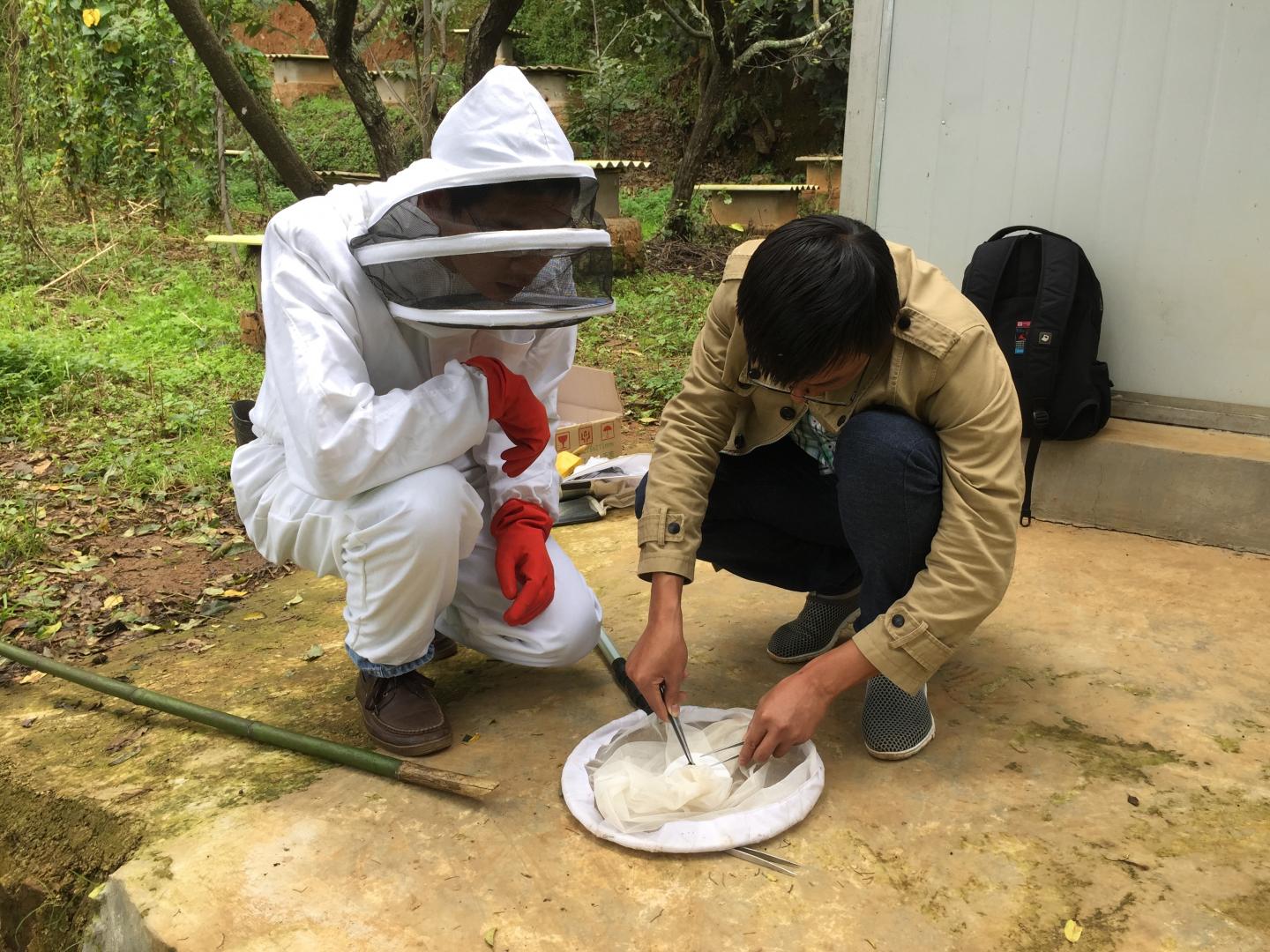
PAPER COAUTHORS PING WEN (LEFT) AND SHI-HAO DONG (RIGHT) STUDY ASIAN HORNETS
(credit: JAMES NIEH)
Over the past decade, Asian hornets, predatory insects with a widespread and expanding population, have invaded parts of Europe and Korea. Vespa velutina has a growing reputation as a species that proliferates rapidly, preys on honey bees and poses risks to humans.
Now a biologist at the University of California San Diego and his colleagues in Xishuangbanna Tropical Botanical Garden (XTBG) have developed a solution for controlling Asian hornets derived from the insect's natural chemical mating instincts.
As reported in the Oct. 11 edition of Scientific Reports, UC San Diego's James Nieh and researchers at the Chinese Academy of Sciences and Yunnan Agricultural University have deciphered the sex pheromone of Vespa velutina. Further, they developed a method of controlling Asian hornets by luring males into traps baited with synthesized versions of the pheromones.
"We have successfully tested the key sex pheromone compounds of this species and the results show that males are highly attracted to them," said Nieh, a professor in UC San Diego's Division of Biological Sciences.
Nieh noted that recently Turkey and Balkan nations have been invaded by Asian hornets, with much of Western Europe at risk. A single hornet can bite and kill hundreds of honey bees in its quest to obtain honey bee larvae. European honey bees have not evolved with this deadly predator and have poor defenses. As a result, "the European economic impact is high," said Nieh, and "major colony losses have led some beekeepers to abandon apiculture."
Nieh noted that Asian hornets are difficult to control because their colonies can spread rapidly and their nests are difficult to find in non-urban areas. They pose dangers to humans with stings that are painful and, in rare cases, deadly.
Pheromones are chemical signals that transmit information between members of the same species. Sex pheromones play a key role in mating and the continued survival of the species. In the case of Asian hornets, which have limited vision, sex pheromones likely play a key role in long-distance attraction. The new research demonstrates a simple, reliable way to monitor and potentially reduce the populations of these invading insects.
Coauthors of the Scientific Reports paper include Ping Wen, Ya-Nan Cheng, Shi-Hao Dong, Zheng-Wei Wang and Ken Tan.
The research was supported by the Key Laboratory of Tropical Forest Ecology, Xishuangbanna Tropical Botanical Garden, and the CAS 135 program (XTBGT01) of the Chinese Academy of Science.
URL: https://www.eurekalert.org/pub_releases/2017-10/uoc--lhs101217.php
Contact
WEN Ping Ph.D
Key Laboratory of Tropical Forest Ecology, Xishuangbanna Tropical Botanical Garden, Chinese Academy of Sciences, Mengla, Yunnan 666303, China
E-mail: wenping@xtbg.ac.cn

